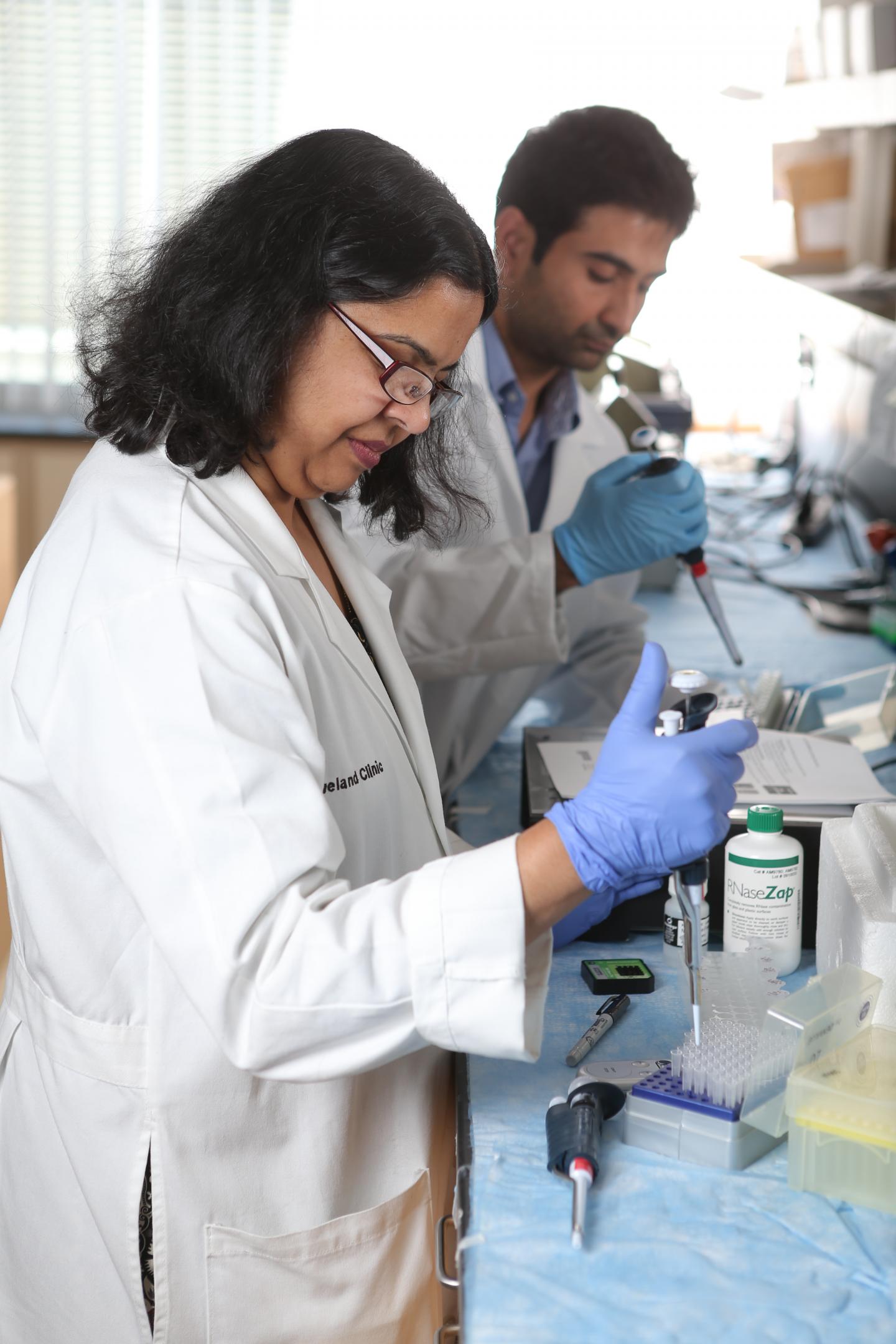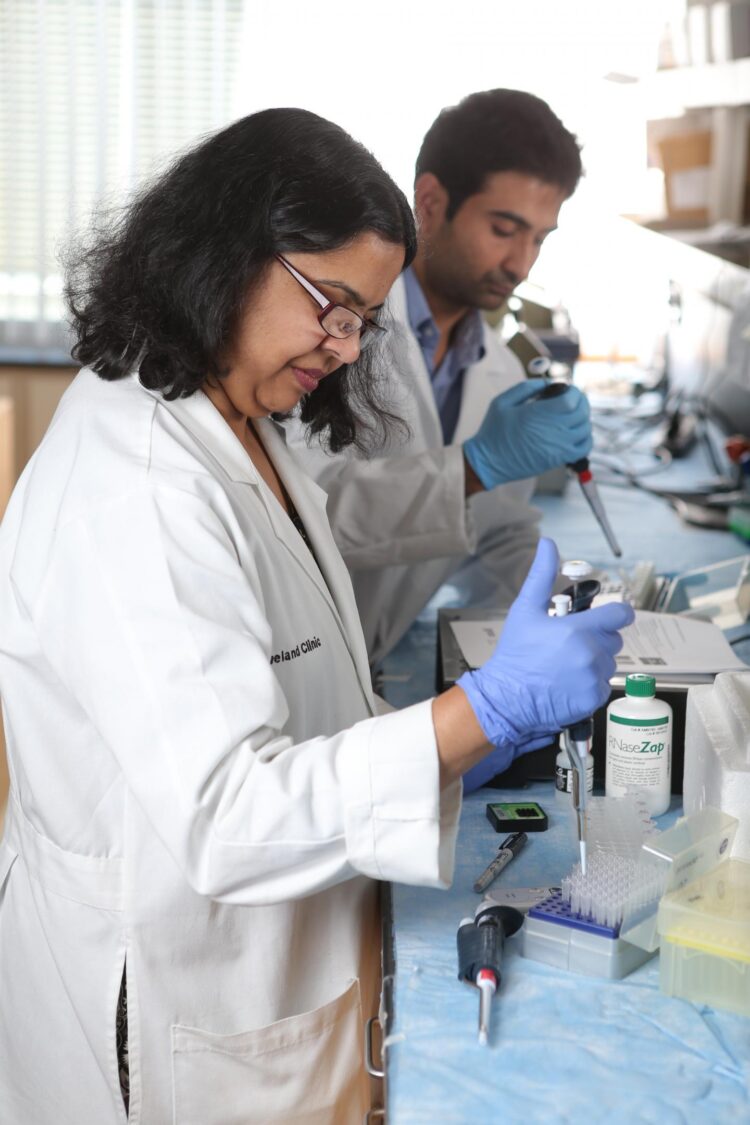Body cells use unique platform normally made during stress to combat virus infections.

Credit: Daniel Miller, The University of Toledo
When the body faces stressful conditions such as high temperatures or lack of nutrients, cells produce the same large structures they make to combat virus infections.
Scientists at The University of Toledo discovered the connection that could be an attractive bulls-eye to aim for when identifying new antiviral targets and immune modulators to fight diverse viruses.
“In light of the ongoing COVID-19 pandemic, this is a promising avenue to protect people by enhancing immune response and stop the spread of deadly viral infections,” Dr. Malathi Krishnamurthy, associate professor in the UToledo Department of Biological Sciences, said. “There is an urgent need to identify new drugs and new drug targets.”
Research published in the Journal of Virology shows how cells in our body use a unique platform that is normally made during stress to combat virus infection. These new targets have potential to lead to new drug therapies to prevent serious damage to human health by harmful viruses.
“Understanding the molecular mechanisms of how the body defends itself is critical for the development of new treatment strategies against viruses,” Krishnamurthy said. “Currently available antiviral therapies target viral replication or viral proteins, but high mutation rates of viruses often lead to drug resistance. Therefore, identification of host response pathways identified in these studies that are common to many viruses can be used to combat a broad range of viral infections, including SARS-CoV2, and improve human health.”
In this study, the researchers demonstrated how a combination of proteins and RNAs called stress granules produced in response to different types of environmental stress also is produced when an enzyme present in all our cells called Ribonuclease L (RNase L) is “turned on” in virus-infected cells.
During virus infection, double-stranded RNA (dsRNA) molecules are produced that alert the host cells of an infection to activate immune pathways.
Specialized cells in our body sense these dsRNAs, which are unique to a virus-infected cell, and produce a chemical called interferon to protect the body and clear the virus infection.
These interferons activate RNase L, which is “turned on” by a small molecule that is produced only during virus infection, and its activity produces more dsRNA to produce more interferon to clear the virus.
“In addition to RNase L, several other proteins in our cells orchestrate response to virus infection, and timely expression and coordination of response is critical to fight viral infections,” Krishnamurthy said.
Unlike the body’s response to conventional stress, these stress granules produced during virus infection orchestrate a more effective and rapid response to increase interferon production to clear viruses.
“Many viruses adapt and evade these host response pathways, and knowledge gained from these studies may help scientists find targets that can prevent serious damage to human health by harmful viruses,” Krishnamurthy said.
###
Media Contact
Christine Billau
[email protected]
Related Journal Article
http://dx.





